Today, nearly everyone can start an online business. It’s become so easy that the internet landscape is filled with all kinds of businesses. Yet, not all of them are destined to reach success. In fact, starting a business is the easiest part of your eCommerce journey. Meanwhile, delivering excellent web performance and user experience takes great knowledge and skills, particularly due to latency, increasing security threats, and unstable connections.
Such technologies as content delivery networks, CDN for short, help solve some of these problems. In this article, we’ll explore this technology that is used by more and more companies and what you can get out of it.
What’s a CDN?
CDN, short for the content distribution network, is a system of servers located worldwide that all contain a copy of the site’s content. When you enable CDN on your website and a user comes to it, they’ll automatically access the website via the closest server. For instance, users in Texas will receive the content via the server nearest to Texas, while users in Paris will receive it via the server closest to them.
Is it the same as web hosting?
The short answer is no; CDN doesn’t host content and can’t substitute the proper web hosting. But it does help cache content at the network edge, which leads to improved website performance.
Many sites go for CDN services because, with traditional hosting, they can’t cover all their needs. This technology utilizes caching to reduce hosting bandwidth, prevents service interruptions, and strengthens security; CDN becomes a necessary tool that solves some of the major problems that come with traditional hosting.
How does it work for the eCommerce industry?
How exactly does it work? Let’s imagine that the traditional content delivery method (where everything comes from one source) is a stream of water. It isn’t limitless and has a certain width. Meaning that you get only as much water as the flow can deliver.
If you want to fill up a pool, it depends on many factors. For instance, if the stream is located far away from the pool, it will take some time to fill it up.
And you also have to clean the pool after every time you use it (just like incognito browsers do); you have to spend loads of time again when you want to use it.
How to make the process less tedious and effortful? Find several sources of water to use at once.
And that’s how CDN works. It provides eCommerce sites with multiple servers to store their content, which increases page speed. Because no customers will want to wait too long for the page to load, they will simply go to your competitors.
What are the benefits of CDN for eCommerce businesses?
Now let’s talk about what is in it for you. CDNs are used by many companies, startups, and big companies. Each company has a different gain from it, whether it’s the most fitting way to reduce bandwidth or increase audience reach. We are here to discuss how CDNs help eCommerce businesses specifically and their benefits for online stores.
Page speed & conversion boost

If you expect your website to deliver content fast, CDN is the way to go. Let’s imagine an eCommerce store that needs to quickly turn users who stumble upon their website into customers and increase sales. If there are any delays in page load times, it would eventually lead to drop-offs, customers abandoning the web page and going for the competitor’s websites.
Meanwhile, with a CDN, an online store can deliver content much faster due to caching content on the servers that are geographically closest to the end-users. The content can include such things as HTML code, images, dynamic content, etc.
Stronger security
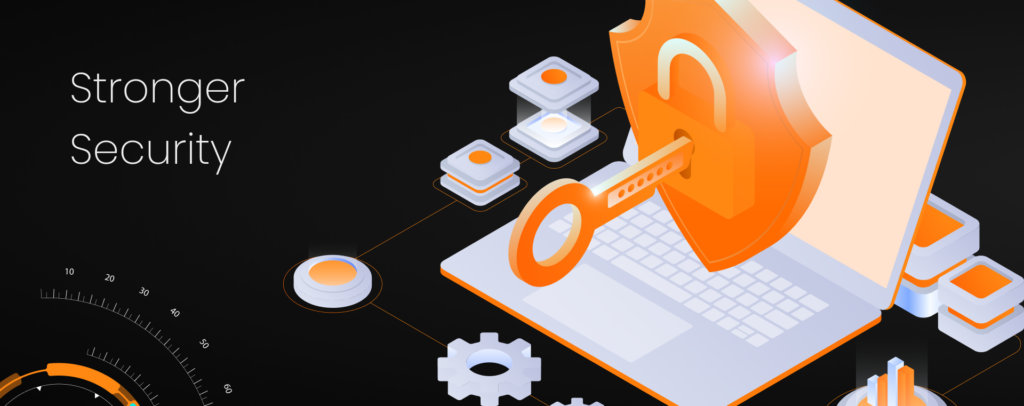
It’s not the primary goal of CDN to strengthen security, but it’s a solid side benefit. With CDNs, server overloads are less likely because they distribute content across various servers. Additionally, they become another firewall against cyber attacks that are based on sending traffic spikes to key servers.
Particularly, it’s helpful in cases of DDoS attacks. These attacks consist of a large volume of requests targeted at significant DNS servers. If the attack is successful, the servers go down along with the website. It results in economic losses and reputation damage and leads to more attacks. Meanwhile, CDNs serve as a DDoS protection and migration platform because they equally distribute the traffic load between multiple servers and protect data centers.
Better viewing experience

In the highly competitive market, business owners are under pressure to ensure high content availability on their websites. However, servers might crash if the traffic is too high, making the content unavailable for users.
This is especially important for businesses that provide video or audio content to a lot of users worldwide. For these companies, the traffic load is expected to reach as many as millions of requests per second, especially if the content is relevant or trendy. If the origin server can’t cope with such load, its failure will result in poor user experience, damaged reputation, and unsatisfied customers.
With CDN, all that traffic will be spread equally among the network of servers, allowing online businesses to enhance their content availability no matter the load. And even if one of the servers goes down, others can pick up the traffic without interrupting the service. Some of the CDNs even have a load balancing feature, which redirects users and requests if the traffic is picking up. In this way, the websites have 100% availability 24/7.
Reduced costs
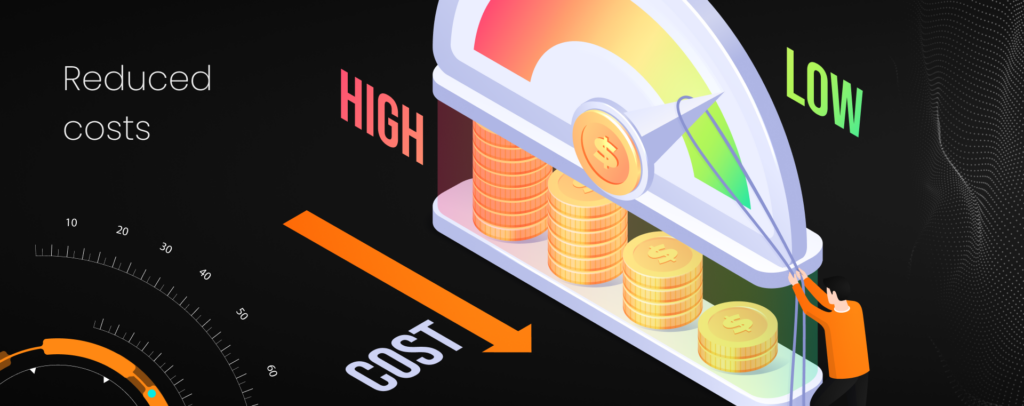
With CDN technology, you pay once for a single service provider rather than spending money on infrastructure and separate service providers around the world. With global CDN, you get access to a single platform and can use it to manage all of the separate operations in multiple locations for a reasonable price. Thus, you can provide your customers with top-notch services even while having a tight budget.
Analytics

CDNs not only deliver your content quickly and efficiently but also provide you with analytical data that can help you discover the strengths and weaknesses of your store. For example, some CDNs not only offer real-time load statistics but also can optimize capacity per customer, show the most active regions, and report the viewing details back to you.
Why is such information important? Once the CDN has been activated, usage logs are no longer relevant. As such, info analytics provided by the CDN is extremely important, especially for developers who use that data to optimize websites in the future. Besides, in-depth reports and analytics will always come in handy, whether utilized for performance increase, enhanced user experience, or increased sales and conversion rates.
Wanna start using CDN immediately?
Drop your contacts and our team will help you to utilize CDN into your online business.
Why care about site speed at all?

Most of CDN’s benefits are tied around the fact that it boosts site speed. Let’s talk about why site speed is crucial for eCommerce businesses.
Impressive user experience
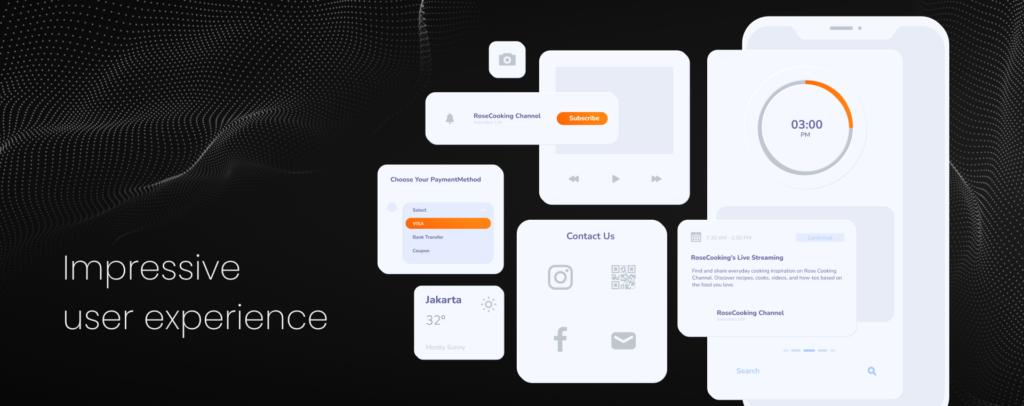
Every user expects the websites to load quickly, between 2 and 5 seconds. First impressions are crucial for online businesses, and speed plays a key role in how users perceive online stores.
If the website loads quickly, it’s considered more reliable and professional, while slow websites annoy users and lead to high bounce rates. In fact, most of the users bounce and immediately go for faster competitors who meet their requirements. Once the negative impression has been set, changing the audience’s opinion is hard.
According to statistics, 40% of people leave the site completely if it takes more than three seconds to load. If you want to offer an immersive user experience, consider that your store should load quickly every time it is opened.
SEO rankings
Google, as well as other search engines, consider speed as one of the primary factors for every product on the web. In fact, Matt Cutts, one of the former leaders of the company, claimed that fast load speed is among the top positive ranking factors.
At the same time, you should not compromise content quality or relevancy for the sake of load times. No matter whether you order healthcare website development or any other type of site from your provider.
If you want your online store to rank well on search engines, you need to ensure that the web pages are optimized enough to load faster. With high rankings, you also get traffic growth, which is a significant factor for online businesses.
Conversions
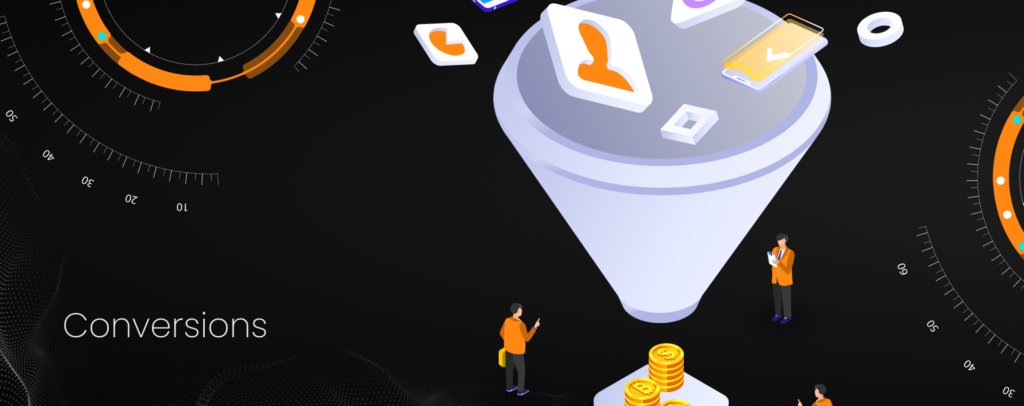
As we’ve already mentioned, Google and other search engines rank lower websites with low page load speed. What are more, users either stop returning to such sites or bounce when the page takes too long to load. You lose both potential customers and revenue.
Just imagine: only a one-second delay results in a 7% reduction in conversion. For instance, if an online store makes $50,000 per day, even a one-second delay can create a $1.28 million loss of revenue yearly.
Fast websites are a must for successful eCommerce businesses. They don’t only result in a positive user experience but also lead to lasting impressions among the target audience. As a result, optimizing page load speed should be among the top priorities for business owners and their teams of developers and testers. And it’s essential to keep this in mind through every stage of the development cycle.
Why do eCommerce stores rely on CDN?
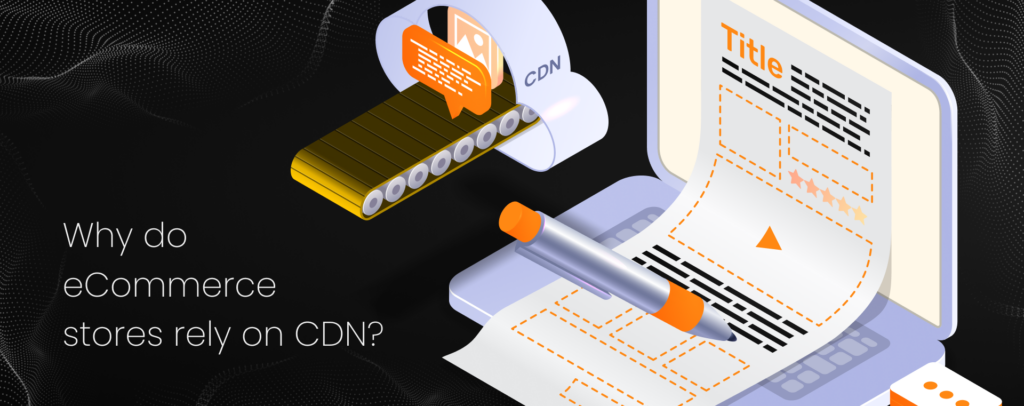
CDNs are used not only by the eCommerce industry businesses but also by many other industries and businesses, such as catalyzing video, games, voice, mobile content, and so on. Specifically, websites that store videos and/or other big media files usually use CDNs. Basically, CDNs are a must for providing quick access to web content. Without CDN, users would be loading files from across the globe instead of accessing them through nearby servers.
Regarding eCommerce stores, particularly, they utilize CDNs because they allow access to customers anywhere in the world without interruptions and delays. The global audience is the focus of most eCommerce stores that offer online content to customers.
Final thoughts
The question of whether you should use a CDN or not depends on the needs of your company. It will pay off if you have a popular website with high traffic and enough resources. In return for the cost, you will get a faster website and an additional layer of security.
The main benefit of CDN for eCommerce stores is its ability to reduce page load times, which leads to other benefits, such as increased conversion rates, sales, and a wider target audience.
If you have questions left about content delivery networks and how they work, don’t hesitate to contact our team and learn more about everything you need to know to lead eCommerce businesses. Besides, don’t forget that you can get in touch with us if you need Shopware development services for your business.
